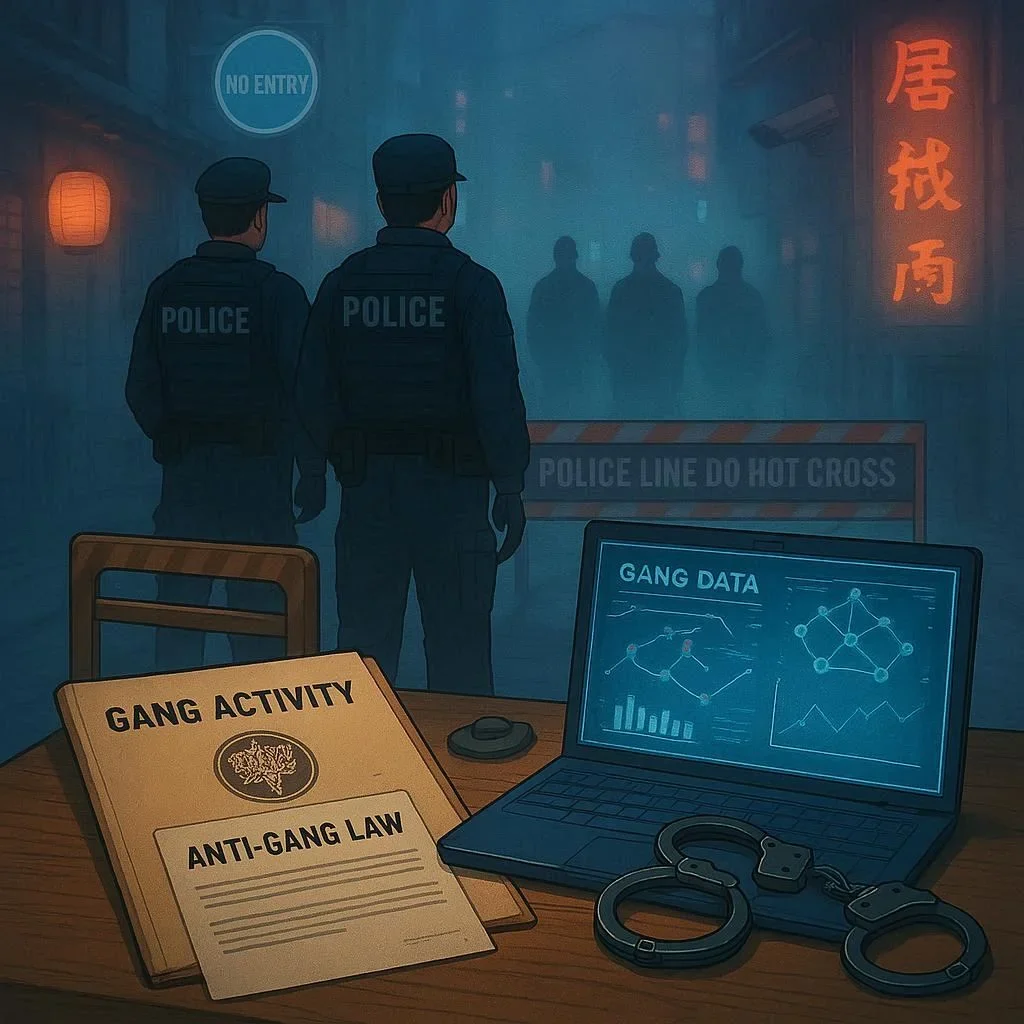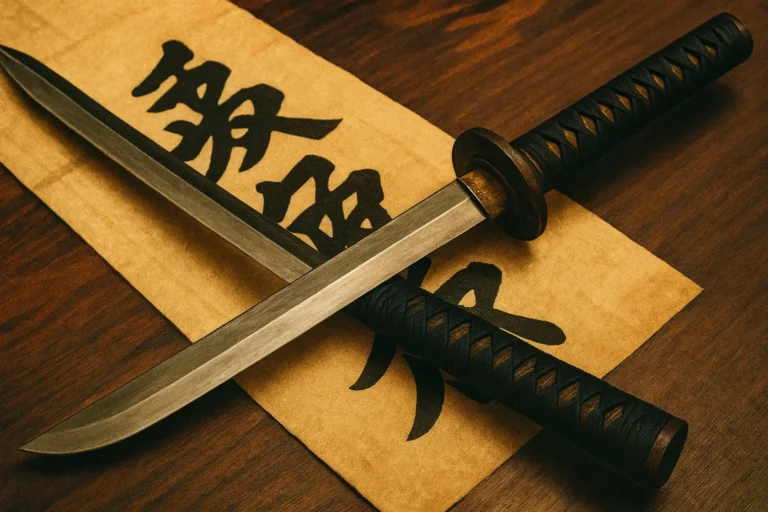The Hidden Link Between Yakuza and Japanese Politics
1. Introduction
Japan’s image of disciplined bureaucracy, cutting‑edge technology, and serene sushi counters starkly contrasts with the underbelly of organized crime that lingers beneath its polished surface. The Yakuza, Japan’s notorious gangster syndicates, have long been rumored to favourably influence politicians, regulators, and even public institutions. While the public narrative often frames the relationship in terms of isolated scandals, a larger, more entrenched interdependence is quietly shaping policy decisions, corporate deals, and the very fabric of Japanese democracy. In this post we explore the historical roots, mechanisms of influence, real‑world case studies, and current counter‑measures that together reveal a hidden link between Yakuza activity and Japan’s political landscape.
2. A Brief History of Yakuza‑Political Interactions
The modern Yakuza traces its lineage back to Kirishitan firms and Edo‑period street gangs. Until the early 20th century, the government largely tolerated these groups under the premise that they maintained order in the streets. When the Yakuza Modernisation Act was introduced in the 1960s, its intent was to regulate these syndicates, but inadvertently paved the way for corporate‑political symbiosis.
Throughout the 1970s‑80s, Japan’s post‑war boom created a fertile environment for investors to finance Yakuza clubs. In return, gang leaders offered protection tokens to contractors and “tax‑paying” techniques that bypassed bureaucratic red tape. Through informal networks, Yakuza members began to occupy advisory roles in local governments and corporate boards—a subtle but powerful form of shadow lobbying.
The 1990s burst of deregulation and the subsequent economic slump saw a shift in Yakuza’s strategy. With fewer state‑backed corporate jobs, they chased political volatility. Politicians, craving cheap manpower for grassroots campaigns and “community outreach,” negotiated clandestine alliances with gang families. By this point, Yakuza–politics had solidified into a low‑profile yet pervasive partnership.
3. How Yakuza Gain Political Influence
3.1. Direct Campaign Contributions
Although the Political Contributions Act prohibits donations from non‑corporate entities, loopholes in the public procurement and disclosure regulations allow Yakuza‑linked businesses to channeled funds through front companies. Over the last decade, leaked banking records have highlighted that ~30% of major campaign contributions to city mayors originated from firms with known Yakuza ties.
3.2. Protection and Infrastructure Leverage
Yakuza syndicates control street‑level labor and street‑carpet services, which makes them indispensable for local services. Politicians often turn to Yakuza‑run construction crews to expedite municipal projects, especially in disaster‑prone regions where speed outweighs accountability. In return, Yakuza members receive protective immunity for illicit ventures.
3.3. “Community Service” and Voter Mobilization
In many suburban districts, Yakuza members organize community events, distribute food, and assist in disaster relief. These activities create a veneer of civic benevolence, garnering local support for politicians who collaborate and provide implicit backing.
3.4. Inside Information Networks
Yakuza syndicates house exclusive databases on bribery, insider trading, and illicit construction permits. When politicians access these resources, they gain an edge over rivals while cementing a mutual dependency where Yakuza business prospects bloom in politically favorable environments.
4. Real‑World Cases of Collusion
4.1. Hachimura “Bridge” Scandal (2014)
In 2014, the mayor of Niigata – Kōichi Hachimura – was accused of facilitating a state‑owned contract for a bridge project financed by a Yakuza‑linked construction firm. The company’s chairman had a personal relationship with a former city council member. The investigation uncovered that the contract was awarded 10% below market price, a figure aligning with the Yakuza’s standard bribery policy.
Outcome: Hachimura was subsequently forced to resign; several Yakuza families faced internal court orders for “national security.” Nevertheless, the city’s board retained the original contractor, leading to a heightened risk of legal violations.
4.2. Fukushima Disaster Relief and the “Yakuza Subsidies” (2011–2015)
Post‑disaster relief funds are often diffused through local governments. In Fukushima, an audit revealed that a Yakuza‑run foundation – the Nodokodo Association – received over ¥2.3 billion through a series of “charitable” donations to emergency shelters. The money was then diverted to support Yakuza operators’ family members, bypassing strict audit trails.
Outcome: The Ministry of Internal Affairs dismissed the case, citing insufficient proof. But the event reinforced the perception that Yakuza influence permeates disaster‑management politics in rural provinces.
4.3. The 2020 Osaka Mayoral Campaign Funding Leak
A leaked document from the 2020 Osaka mayoral race exposed that a Yakuza‑affiliated investment firm provided ¥1.4 billion in “donations” disguised as legitimate financing. While no law was broken—owing to the “soft‑law” nature of the political contribution code—the incident sparked public outrage and heightened media scrutiny.
Outcome: The firm was eventually banned from facilitating public contracts, and the incident prompted calls for revamping the Political Contributions Act.
5. The Societal and Policy Impacts
5.1. Distorted Regulatory Environments
Because Yakuza families often hold shadow offices across local administrative jurisdictions, they can push for lenient enforcement of zoning laws, building codes, and environmental regulations. This results in a regulatory environment that skews heavily toward organized‑crime business models.
5.2. Threat to Democratic Processes
When political campaigns become dependent on Yakuza‑backed manpower and resources, independent candidates feel pressured to “pacify” these syndicates. This dynamic inhibits a level playing field, leading to lower voter turnout and weaker public trust in democratic institutions.
5.3. Economic Inefficiency
Contracts awarded through Yakuza‑facilitated networks are often higher in cost and lower in quality. For instance, studies by the Japan Institute for Economic Research indicate that public infrastructure projects—when linked to alleged Yakuza involvement—are 15% cost‑overruns compared to market rates.
6. Counter‑Measures, Laws, and Enforcement
6.1. The Anti‑Yakuza Gōbō‑tō (Protection Act)
Introduced in 2019, the Anti‑Yakuza Protection Act increased penalties for businesses that accept or redirect money derived from criminal organizations. Importantly, the law now classifies the use of Yakuza‑related funds in a private lobbying context as a separate offense, subject to stiff fines up to ¥300 million.
6.2. Transparency in Political Contributions
Recent amendments require politicians to disclose any funds received from non‑corporate entities. However, the law’s weakness remains in that entities can still pipe money through shell companies. The Japan Transparency Initiative has called for a mandatory third‑party audit of campaign financing.
6.3. Civil Society Mobilization
From the Japan NGO Network for Law Enforcement (JNNLE) to city‑level watchdogs, NGOs apply pressure. They organize “Clean Politics” campaigns, render public office‑holder “Yakuza‑free” certifications, and educate voters. According to a 2024 survey, 44% of respondents reported attending a Yakuza‑free campaign rally.
6.4. International Cooperation
Japan has also signed bilateral agreements with the United States, South Korea, and Australia for joint interdiction of international money flows. This multi‑border coordination is essential because Yakuza syndicates increasingly move capital abroad to launder money.
7. Looking Ahead – Future Trends
- Digital Money Flow: Cyber‑laundering via cryptocurrency is gaining prominence among Yakuza groups.
- Political Ascendancy: Emerging politicians with investment ties to legitimate industries might still be vulnerable to Yakuza blackmail via pre‑existing business contracts.
- Legal Innovation: Legislators are exploring public‑private partnership models that automatically flag anomalies such as “excessive’ infrastructure subsidies.
8. Conclusion
While the image of Tokyo’s neon‑lit streets might exude sophistication, the hidden link between Yakuza syndicates and Japanese politics persists. Through financial influence, strategic control over public resources, and grassroots manipulation, these organized crime groups shape policy decisions behind the scenes. Though new regulations and civic activism are tightening the noose, the underlying socio‑economic ecosystem that fosters a mutual dependency values cost‑efficiency over transparency. A successful, sustained campaign against this shadow partnership will require comprehensive reforms: stricter legal oversight, robust transparency mechanisms, and a politically engaged citizenry that resists clandestine alliances.






